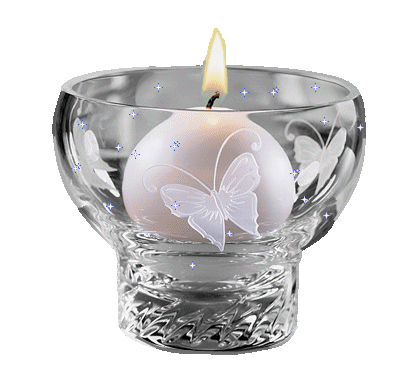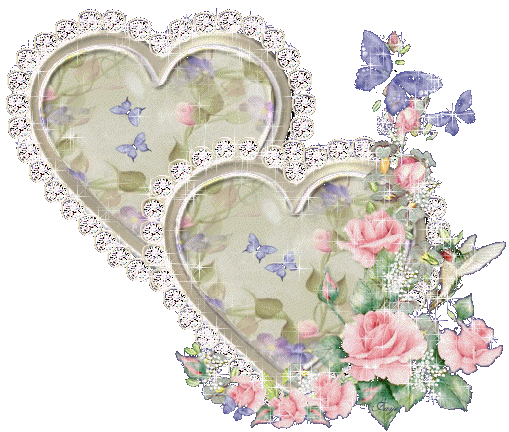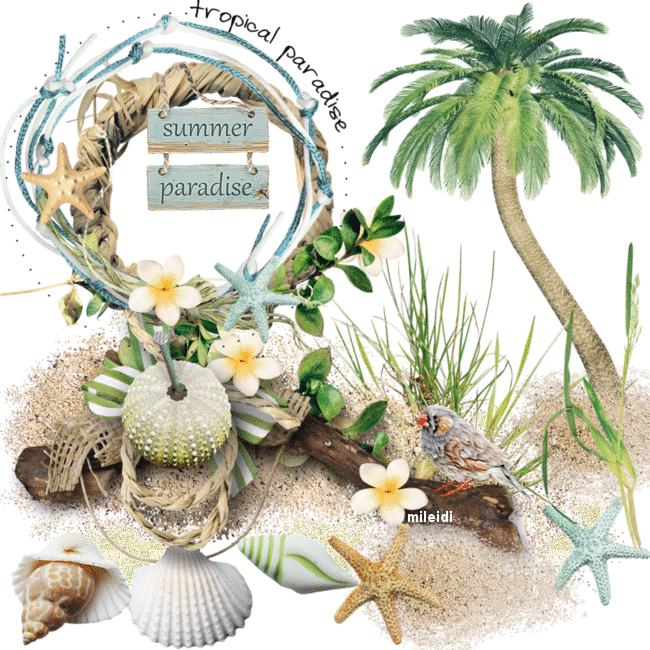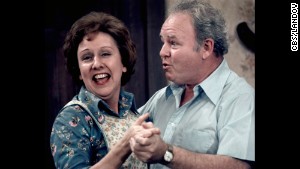Tuesday, June 25, 2013
James Joseph Gandolfini, Jr. (September 18, 1961-June 19, 2013)
James Joseph Gandolfini, Jr. was an American actor best known for his role in The Sopranos as Tony Soprano, a troubled crime boss.
Early life
Gandolfini was born in Westwood, New Jersey. His mother, Santa, a high school lunch lady, was born in the USA of Italian ancestry and raised in Naples, Italy. His father, James Joseph Gandolfini, Sr., a native of Borgotaro, Italy, was a bricklayer and cement mason and was later the head custodian at Paramus Catholic High School in New Jersey. James, Sr. earned a Purple Heart in World War II. Gandolfini's parents were devout Roman Catholics and spoke Italian at home. Due to the influence of his parents, he developed a strong sense of being Italian and visited Italy regularly.
He grew up in Park Ridge, New Jersey and graduated from Park Ridge High School in 1979, where he played basketball, acted in school plays, and was awarded the title "Class Flirt" in his senior yearbook. He attained a Bachelor of Arts degree in communication studies from Rutgers University. He was introduced to acting as a young man living in New York City when he accompanied friend Roger Bart to a Meisner technique acting class.
CAREER
The Sopranos
Gandolfini's most acclaimed role was that of Tony Soprano, a New Jersey Mafia boss and family man who was the lead character in the HBO drama The Sopranos, which debuted in 1999 and ran through 2007. He won three Emmys for "Best Actor in a Drama" for his depiction of Soprano, who constantly questions his identity and purpose. Entertainment Weekly listed him as the 42nd Greatest TV Icon of All Time.
Film and stage work
Gandolfini performed in a 1992 Broadway production of On the Waterfront for six weeks. One of his best-known film roles was that of Virgil, a brutal woman-beating mob enforcer, in the 1993 romantic thriller True Romance. Gandolfini said that one of his major inspirations for the role of Virgil, in True Romance, was an old friend of his who was a hitman. In the 1994 film Terminal Velocity, Gandolfini played Ben Pinkwater, a seemingly mild-mannered insurance man who turns out to be a violent Russian mobster. In Get Shorty (1995), he appeared as a bearded ex-stuntman with a Southern accent, and in The Juror (1996), he played a mob enforcer with a conscience. He played the Mayor of New York in the 2009 remake of The Taking of Pelham 123. Gandolfini returned to HBO in 2007 as the executive producer of the Emmy-nominated documentary special, Alive Day Memories: Home From Iraq, his first project after The Sopranos and the first production for his company Attaboy Films, which was opened in 2006 with producing partner Alexandra Ryan. He returned to the stage in 2009, appearing in Broadway's God of Carnage with Marcia Gay Harden, Hope Davis and Jeff Daniels. He was executive producer of the 2012 HBO film about Ernest Hemingway and his relationship with Martha Gellhorn, titled Hemingway & Gellhorn, starring Clive Owen and Nicole Kidman. Gandolfini reunited with Sopranos creator David Chase for Not Fade Away (2012), a music-driven production set in 1960s New Jersey.
Alive Day: Home from Iraq
Gandolfini and Tony Sirico visit with a member of the U.S. Air Force during a USO visit to Southwest Asia, March 31, 2010. In 2007, Gandolfini produced a documentary with HBO focused on injured Iraq War veterans and their devotion to America, while surveying the physical and emotional costs of war. Ten surviving soldiers were interviewed by Gandolfini, who revealed their thoughts on the challenges they face integrating back into society and family life. They also reflected on the memories of the day when they narrowly escaped death, and what life may have been like in other circumstances.
Wartorn: 1861–2010
In 2010, Gandolfini produced another documentary with HBO, which analyzed the effects of posttraumatic stress disorder (PTSD) throughout American history, from 1861 to 2010. It featured interviews with American military officials on their views of PTSD and how they are trying to help soldiers affected by it. Letters from soldiers of the American Civil War and World War I who were affected by PTSD are examined, along with interviews with soldiers affected by PTSD and their families.
Death and reaction
Gandolfini died on June 19, 2013, during a brief vacation in Rome, Italy. He was expected to travel to Sicily on June 22 to receive an award at the Taormina Film Fest. Following a day of sightseeing in Rome in sweltering heat, Gandolfini's 13-year-old son Michael discovered him around 10 pm local time on the bathroom floor at the Boscolo Exedra Hotel in Rome's Piazza della Repubblica. Michael called hotel reception, who in turn called emergency paramedics. Ambulance staff arrived around 10:40 pm and attempted to resuscitate Gandolfini, who was reportedly still alive at the hotel but subsequently died en route to the hospital. An autopsy on Gandolfini confirmed that he had died of a heart attack.
Word of his death spread among Gandolfini's friends, former co-stars, and fans. Politicans such as John McCain and Chris Christie took to the Internet to respond to his death. Christie ordered all New Jersey State buildings to fly flags at half staff on June 24, to honor Gandolfini when his remains return to the United States. The day following his death, Bruce Springsteen and the E Street Band, which features Gandolfini's Sopranos co-star Steven Van Zandt on guitar, gave a full album performance of their 1975 classic Born to Run and dedicated it to Gandolfini.
Gandolfini's body was returned to the United States on June 23. His family spokesman, Michael Kobold, thanked Italian authorities for expediting the repatriation process, which normally takes 7 full days. His funeral service will be held on Thursday, June 27, at the Episcopal Cathedral of Saint John the Divine in Morningside Heights, New York City.
Labels:
eulogy,
James Joseph Gandolfini,
The Sopranos
Saturday, June 22, 2013
The Catskills, a place called home for a while
Found these old photos which brought back an array of emotions and wonderful memories.
The Catskills is diverse in topography -- farmland (an hour to the south was Woodstock--my most favorite place on earth), mountains for skiing, traces of native american and cowboy ancestry (an hour to the north was Oneonta), and the people who lived along that line couldn't have been more different, yet so vital. Eventually, I'd start an employment agency, which would serve that radius.
| Catskills, 1983 |
Early 80's Woodstock was alive with hippies, yuppies, and Hells Angels gathered on the square to reminisce and bask in the glory each group vied to offer. And at no time were there problems. All went about their business as if 1969 remained frozen in time, war free. With hemp clothing and candle stores cattycornered, artisans of every genre along the main street, and food that catered to the most discriminating, it is a remarkably eclectic and inspiring town, surrounded by the good earth.
 |
| Catskills, 1983 |
Although Oneonta's nickname is "City of the Hills," the word "oneonta" is of undetermined origin, but popularly believed to mean "place of open rocks" in the Iroquois language. This refers to a prominent geological formation known as "Tablerocks" at the western end of the city and is home to the State University of New York at Oneonta.
And between the two is a string of farms; some large, some small, some dairy, some cattle, along with large homes of those who moved up from the Metropolitan area to live; those who craved the quiet and verdance of the Catskills but close enough to work and play in the City--New York City, that is.
Honky-tonks catered to the local cowboys and cowgirls, where my mother felt at home listening and singing to her favorite country artists along with the locals. And Native Americans sold and shared their wares and culture with those of us who'd hope to help resurrect their past into the present.
Back at the farm, however, when my parents, other family members, or friends visited, there was plenty to do on the Old MacDonald's, so called for no shortage of animals (and space). To the right of the driveway was a pond, home to several white Peking ducks; chickens and geese clucked and honked a visitor into the house; Angel and Chestnut, quarter horses, grazed alongside some cows and two goats; and there were dogs and cats, enough to fill a small animal shelter. It truly was a slice of heaven on earth.
 |
| My father and nephews feeding Angel & Chestnut Catskills, 1983 All, a little piece of heaven on earth! |
Friday, June 21, 2013
Monday, June 17, 2013
The Nurse
While I lived in Edinburgh, Scotland from 1985-1986, I learned much about its people and made many friends who, like most, worked 9-5 every day. Although I traveled extensively throughout Scotland, England, Wales, and Ireland, I found myself with plenty of time left to pursue hobbies, including charcoal sketching. Hence, The Nurse, I fondly call her, was born.
 |
| The Nurse |
When I returned to the United States, my sketches, including The Nurse, were buried away. Some time later I met a woman who believed in psychics. She's not the first acquaintance or friend who believes; quite a number take their professional horoscopes quite seriously. I, on the other hand, was skeptical although I kept an opened mind. I've heard numerous proclamations made by my peers that their professional, love, and everyday lives were directly affected by psychics or horoscopes. I'd listen without judgment, but still, somewhat skeptically.
As I mentioned earlier, soon after my return to the United States a friend met with a psychic every week. During our occasional lunch, she told me that I came up as a new friend, and asked the psychic what it meant. She truly believed that every person who entered her life had a reason for doing so.
This was the result of my introduction; not physically, but spiritually, to her psychic. That during WWII, I had been a nurse living in London, and killed during a Nazi air raid. "Wasn't it obvious?" she'd remark.
1) That I would be reborn in Germany due to the union of a man, my father, who served in the British army while stationed in Germany and a woman, my mother, who was German. Really?
2) Then there was my burning desire to become a doctor, a Pediatrition to be exact, from the first moment I held my baby sister, Janie. Obviously, this never came to pass. To the psychic, it was part of a master plan in that I secretly desired to be a doctor while I was a nurse during WWII but was cut short due to my death. Okay.
All quite fascinating and without the knowledge of the existence of The Nurse. But to quote a line from the film, The Big Chill, that "rationalizations are more important than sex..." seems plausible in situations such as these. Because without them, how do we try to understand the incronguous, the unexplainable, the coincidences, everything? Here, I agree with Iris Dement, "Let the mystery be..."
Yet, over 25 years later, I sometimes wonder, why, out of the blue, did I sketch a portrait of a woman I've dubbed, The Nurse? Perhaps, this is a case for John Edward, after all.
Sunday, June 2, 2013
Sunday is for Poetry: MARIA
Maria and I on high school graduation night, June 1969.
Jealousy is a silent, secret wish
To change what I am not
To what I never will be.
Long gone is my curly, black hair
And dark brown eyes
That could not see
My wish to be,
Maria.
**petra michelle**
Jean Stapleton (January 19, 1923 to May 31, 2013)
 |
| Carol Burnett and Jean Stapleton on "The Carol Burnett Show" in 1975. |
(CNN) -- Actress Jean Stapleton, best known for her role as Archie Bunker's wife in the groundbreaking 1970s sitcom "All in the Family," has died, her son said Saturday.
She was 90 years old.
Her son John Putch told CNN about
her passing and, along with his sister Pamela Putch, wrote an obituary saying
that she "passed away peacefully of natural causes" on Friday at her New York
City home "surrounded by friends and her immediate family."
"No one gave more profound 'how
to be a human being' lessons than Jean Stapleton," said Norman Lear, who
produced and directed "All in the Family." "Goodbye Edith, darling."
The daughter of an opera singer
and businessman, Stapleton grew up on Long Island and in New York City. It was
there during the early 1940s, while working as a typist for the British War
Ministry Office, that she began her career in theater.
Stapleton made it to Broadway in
the production "In the Summer House" in 1953, the same year of her television
debut on the daytime drama "Woman With a Past." Other big stage roles followed,
including in "Bells Are Ringing" and "Damn Yankees."
She also did more and more
television, including appearances on shows such as "Philco TV
Playhouse" and "Dr. Kildare."
Her breakout role was as Edith
Bunker, the conscience of "All in the Family" as the kindhearted foil to husband
Archie, played by the late Carroll O'Connor.
"All in the Family" was one of
television's most popular shows as it broke ground while tackling a host of
social issues such as racism, sexuality, life and death. Edith Bunker, played by
Stapleton, for instance revealed that she had breast cancer on the show, a rare
occurrence at the time.
"I just loved doing it from the
very beginning," Stapleton told CNN in 2001, shortly after O'Connor's death.
She won three Emmy awards -- in
1971, 1972 and 1978, in addition to five other nominations in which he she fell
short -- for her performance in that Lear-helmed show.
"Jean was a brilliant comedienne
with exquisite timing," said Rob Reiner, who played the Bunkers' son-in-law
referred to as "Meathead" on the show. "Working with her was one of the greatest
experiences of my life."
Stapleton kept busy after the
show went off in the air in 1979 and kept on racking up more accomplishments.
Those include Emmy nominations in 1982 for playing Eleanor Roosevelt in the CBS
miniseries "Eleanor, First Lady of the World" and in 1995 as Aunt Vivian in a
guest spot on the ABC comedy "Grace Under Fire."
"RIP Jean Stapleton," tweeted
fellow TV comedy veteran Roseanne Barr, "a great actor whose range was
unbelievable, deep and majestic."
In 2002 she was chosen for the
Television Academy Hall of Fame, joining the likes of Tim Conway and Bob Mackie
in that organization's 15th induction class.
Her most recent on-screen
credits, according to the IMDB website, are from 2001 when she appeared in the
film "Pursuit of Happiness" and the TV movie "Like Mother Like Son: The Strange
Story of Sante and Kenny Klimes" along with Mary Tyler Moore.
And after "All in the Family,"
she continued working in theater, including a nationwide tour as Roosevelt in
her one-woman show "Eleanor: Her Secret Journey," the Broadway revival of
"Arsenic and Lace" and Obie Award performances in Harold Pinter's "Mountain
Language" and "The Birthday Party." Her final stage appearance was in "The
Carpetbagger's Children" a few blocks from her home in New York, to which she
returned permanently in 2002.
Calling her "our collective
Mother, with a capital M," John and Pamela Putch -- Stapleton's two children
with her husband William Putch, whom she married in 1957 and who died in 1983 --
said "her devotion to her craft and her family taught us all great lessons."
"In her own words, she was an
'actress,' not a celebrity," they wrote in her obituary. "The play always came
first."
Labels:
Jean Stapleton 1923-2013
Saturday, June 1, 2013
"But if it proves to be His will that I am first to cross, and somehow I have a feeling it will be. When it comes your time to travel, likewise don't feel lost, for I will be the first one that you'll see..."
As with June, my mother was the first to cross.
My mother remained by my father's side since she met him at the age of 16 while he was stationed in Hamburg, Germany serving in the British Army, up to the time they came to the United States, raised six children, until her death.
Their unconditional love embraces me, still, and always will.
one;
sung beautifully by JTune and Johnny Cash.
The song "The Far Side Banks of Jordan" is sung beautifully by June and Johnny Cash; a spiritual about a loved one leaving but waiting for the other. I can't help wonder of my elderly father's feelings now that my mother's gone.
 |
| New York Post, A piece I wrote re: my mother's battle with Alzheimer's, requiring home care |
 |
| My mother, 16, in Hamburg where she met my father, 1950 |
 |
| My father, 21, in British Army, stationed in Hamburg, 1950 |
Labels:
Parents Gerlinda and Joseph
Subscribe to:
Comments (Atom)



























































